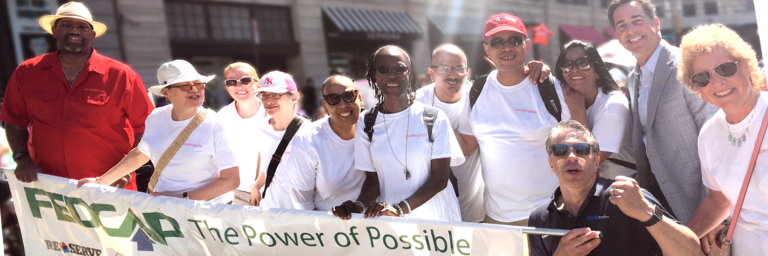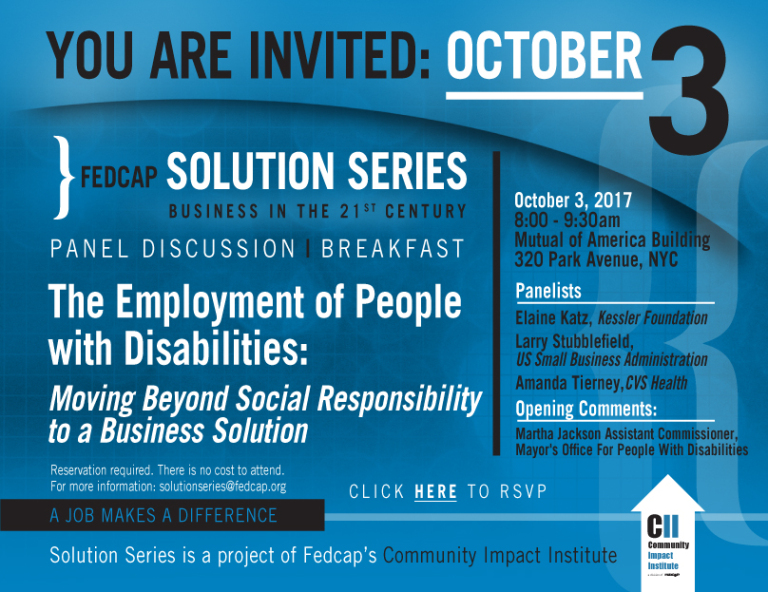Busting the Myths around Employment of Those with Disabilities
I am so looking forward to our Solution Series discussion next week on the Employment of People with Disabilities. (See info below.) This exciting panel discussion is an opportunity for the business community to hear the compelling arguments about why it is not only a socially responsible practice to hire those with disabilities, but also why and how it is a proven boost to the bottom line.
There are some perceived myths about hiring those with disabilities. Those perceptions only add to the stigma that we spend every day here at Fedcap trying to dispel. Next week, we will be hearing more from business leaders about their own experience with increasing the bottom line based on their hiring of people with disabilities. Here are some of those perceptions and some realities that disprove those misconceptions:
Myth: “We need fast workers! The person with a disability will slow us down.”
The Reality: Those with disabilities are generally better able to solve problems—and quickly. They have had to navigate barriers that many of us don’t see. They have had to find short cuts, workarounds, and process improvements—many times just to perform daily tasks with ease.
Myth: “It will cost me too much to install expensive accommodations—way beyond ‘reasonable.’”
Reality: According to the President’s Job Accommodation Network Committee (courtesy of AMSVan), beyond employer-required ADA accommodation, most individuals with disabilities do not require special accommodation. Of those who do, 50% cost $500 or less, 12% cost between $501 and $1000, and 22% exceed $1000. These are small investments given the overall contribution to the bottom line.
Myth: “My workers’ comp payments will go way up.”
Reality: Actually, there is no difference in workers’ comp claims between those with disabilities and those without.
Myth: “Those with disabilities will call out sick more often.”
Reality: Statistically, there is no difference in absenteeism between those with or without disabilities.
Myth: “I can’t count on the job performance of those with disabilities.”
Reality: A Dupont survey of 2,745 employees with disabilities found that 92% of employees with disabilities rated average or better in job performance compared to 90% of employees without disabilities. Surveys by Walgreens, 3M, AT&T, Pepsico had similar findings.
Another reality about hiring those with disabilities is that employers, once leery about hiring, discover that as they get to know their employees and get to see the type of commitment and work that they do, they become champions of hiring those with disabilities. Part of the problem is lack of exposure to this segment of the workforce. My own experience bears out the statistics and realities I’ve outlined. Hiring those with disabilities isn’t just a socially responsible thing to do—but it contributes mightily to the culture and to the bottom line of any organization.
There’s still time to register for our Solution Series on the morning of October 3rd at the Mutual of America building on Park Avenue. Our roster of speakers represents business, government, and foundations all united in common commitment to educating employers about the benefits of hiring those with disabilities. This forum promises to be fascinating. I urge you to join us!



